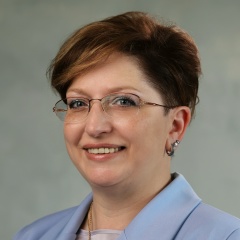"Патологическое чувство вины не стоит путать с нормальной виной, когда вы наступили другому на ногу.
С нормальной виной просто, вы попросили прощения и оно прошло. С патологической виной все гораздо сложнее, там облегчение никогда не наступает. Потому что дело не в вине.
Когда взрослый высказывает ребенку недовольство им, первое, что испытывает ребенок - это страх. Страх он испытывает в силу того, что от его сознания не может укрыться факт собственной беспомощности перед взрослым. Дети это ощущают невербально, так же как одно маленькое животное чувствует свою беспомощность перед другим, большим и сильным животным. И на животном уровне недовольство родителя для ребенка звучит как угроза.
Никто не любит переживать страх. Некоторые дети плачут от страха, другие пытаются с ним справится. Бессознательный способ, которым пользуются дети, не желающие плакать, это присвоение себе ответственности за родительское недовольство, которое они переживают в виде чувства вины. Присвоение себе этой ответственности имеет преимущество перед страхом, оно дает перспективу, что родителя можно сделать довольным и тем самым избавить себя от угрозы, а значит и от переживания страха. Родителям, не осознающим, как они влияют на психику ребенка своим поведением, это очень даже нравится, они называют этот процесс воспитанием, хотя на деле это манипулирование на страхе ребенка.
В последствие такой механизм обращения с недовольством взрослого только укрепляется, чем больше недоволен родитель, тем больше вины у ребенка. Родитель и ребенок живут в полной уверенности, что за недовольство родителя отвечает ребенок и власть с ним справится есть только у него. А родитель - жертва ребенка, неспособная справляться со своими чувствами.
Дети таких родителей вырастают тревожными и гиперответственными, они все время пытаются не допустить конфликта, недовольства другого человека, постоянно оправдываются и извиняются, и чувствуют себя виноватыми чуть ли ни за все на свете в этом мире.
Обратная сторона чувства вины - это иллюзия власти над другим человеком, мол, сделаю его довольным, и счастье мне гарантировано. Но управление своим поведением лежит внутри каждого человека и не подвластно другим людям, и попытки сделать всех счастливыми, чтобы мне стало не страшно жить, заранее обречены на провал"
via http://anna-paulsen.livejournal.com/762142.html
С нормальной виной просто, вы попросили прощения и оно прошло. С патологической виной все гораздо сложнее, там облегчение никогда не наступает. Потому что дело не в вине.
Когда взрослый высказывает ребенку недовольство им, первое, что испытывает ребенок - это страх. Страх он испытывает в силу того, что от его сознания не может укрыться факт собственной беспомощности перед взрослым. Дети это ощущают невербально, так же как одно маленькое животное чувствует свою беспомощность перед другим, большим и сильным животным. И на животном уровне недовольство родителя для ребенка звучит как угроза.
Никто не любит переживать страх. Некоторые дети плачут от страха, другие пытаются с ним справится. Бессознательный способ, которым пользуются дети, не желающие плакать, это присвоение себе ответственности за родительское недовольство, которое они переживают в виде чувства вины. Присвоение себе этой ответственности имеет преимущество перед страхом, оно дает перспективу, что родителя можно сделать довольным и тем самым избавить себя от угрозы, а значит и от переживания страха. Родителям, не осознающим, как они влияют на психику ребенка своим поведением, это очень даже нравится, они называют этот процесс воспитанием, хотя на деле это манипулирование на страхе ребенка.
В последствие такой механизм обращения с недовольством взрослого только укрепляется, чем больше недоволен родитель, тем больше вины у ребенка. Родитель и ребенок живут в полной уверенности, что за недовольство родителя отвечает ребенок и власть с ним справится есть только у него. А родитель - жертва ребенка, неспособная справляться со своими чувствами.
Дети таких родителей вырастают тревожными и гиперответственными, они все время пытаются не допустить конфликта, недовольства другого человека, постоянно оправдываются и извиняются, и чувствуют себя виноватыми чуть ли ни за все на свете в этом мире.
Обратная сторона чувства вины - это иллюзия власти над другим человеком, мол, сделаю его довольным, и счастье мне гарантировано. Но управление своим поведением лежит внутри каждого человека и не подвластно другим людям, и попытки сделать всех счастливыми, чтобы мне стало не страшно жить, заранее обречены на провал"
via http://anna-paulsen.livejournal.com/762142.html
"The pathological guilt should not be confused with normal guilt when you step on the other foot.
With normal guilt, it’s just that you asked for forgiveness and it passed. With pathological guilt, everything is much more complicated, relief never comes there. Because it’s not the fault.
When an adult expresses displeasure to a child, the first thing a child experiences is fear. He experiences fear because the fact of his own helplessness before an adult cannot hide from his consciousness. Children feel this non-verbally, just as one small animal feels helpless in front of another large and strong animal. And at the animal level, parental displeasure for the child sounds like a threat.
No one likes to experience fear. Some children cry with fear, others try to cope with it. The unconscious way that children who do not want to cry is used is the appropriation of responsibility for parental discontent, which they experience in the form of guilt. Assigning this responsibility to yourself has an advantage over fear, it gives the prospect that a parent can be satisfied and thereby rid himself of the threat, and therefore of experiencing fear. Parents who are not aware of how they influence the child’s psyche with their behavior really like it, they call this process parenting, although in fact it is manipulating the child’s fear.
As a consequence, this mechanism of dealing with adult discontent only strengthens; the more the parent is dissatisfied, the more guilt the child has. The parent and child live in complete confidence that the child is responsible for the parent's displeasure and that only he has the power to cope with it. And the parent is the victim of the child, unable to cope with their feelings.
Children of such parents grow up anxious and hyperresponsible, they always try to prevent conflict, discontent of another person, constantly make excuses and apologize, and feel guilty for almost everything in the world.
The flip side of guilt is the illusion of power over another person, they say, I will make him happy, and happiness is guaranteed to me. But the management of their behavior lies within each person and is not subject to other people, and attempts to make everyone happy so that I don’t feel scared to live are doomed to failure in advance. "
via http://anna-paulsen.livejournal.com/762142.html
With normal guilt, it’s just that you asked for forgiveness and it passed. With pathological guilt, everything is much more complicated, relief never comes there. Because it’s not the fault.
When an adult expresses displeasure to a child, the first thing a child experiences is fear. He experiences fear because the fact of his own helplessness before an adult cannot hide from his consciousness. Children feel this non-verbally, just as one small animal feels helpless in front of another large and strong animal. And at the animal level, parental displeasure for the child sounds like a threat.
No one likes to experience fear. Some children cry with fear, others try to cope with it. The unconscious way that children who do not want to cry is used is the appropriation of responsibility for parental discontent, which they experience in the form of guilt. Assigning this responsibility to yourself has an advantage over fear, it gives the prospect that a parent can be satisfied and thereby rid himself of the threat, and therefore of experiencing fear. Parents who are not aware of how they influence the child’s psyche with their behavior really like it, they call this process parenting, although in fact it is manipulating the child’s fear.
As a consequence, this mechanism of dealing with adult discontent only strengthens; the more the parent is dissatisfied, the more guilt the child has. The parent and child live in complete confidence that the child is responsible for the parent's displeasure and that only he has the power to cope with it. And the parent is the victim of the child, unable to cope with their feelings.
Children of such parents grow up anxious and hyperresponsible, they always try to prevent conflict, discontent of another person, constantly make excuses and apologize, and feel guilty for almost everything in the world.
The flip side of guilt is the illusion of power over another person, they say, I will make him happy, and happiness is guaranteed to me. But the management of their behavior lies within each person and is not subject to other people, and attempts to make everyone happy so that I don’t feel scared to live are doomed to failure in advance. "
via http://anna-paulsen.livejournal.com/762142.html
У записи 2 лайков,
2 репостов.
2 репостов.
Эту запись оставил(а) на своей стене София Завьялова

















![Стас Однолетков -=[strast]=- Стас Однолетков -=[strast]=-](https://sun9-50.vkuserphoto.ru/s/v1/ig2/BQKIUfD3kthNCNNY9BS69xiPt_GjwVRhAU8D64L6gfeFjcmrTqYrLAC9NKgCppVxwhm79Mi5RypIHhjSHOhQK2uy.jpg?quality=95&crop=347,544,400,400&as=32x32,48x48,72x72,108x108,160x160,240x240,360x360&ava=1&cs=200x200)




